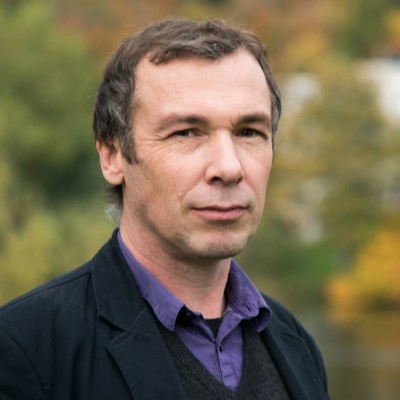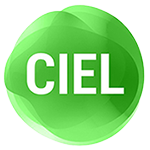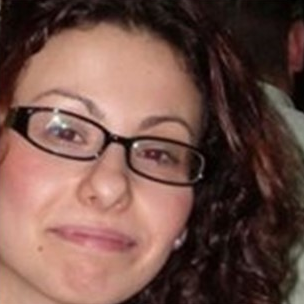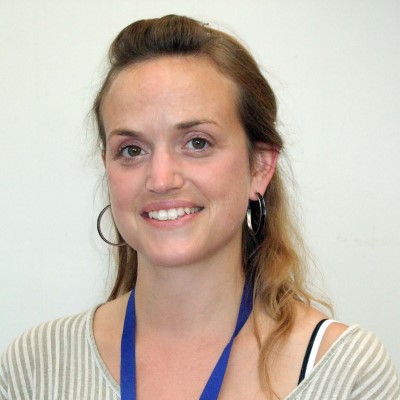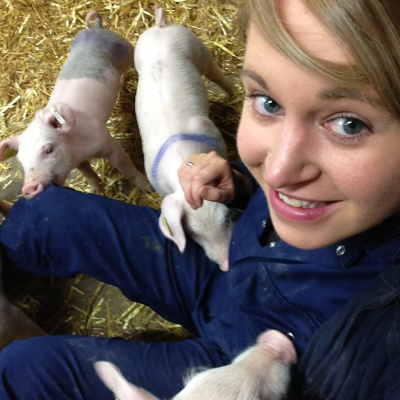CIEL | Meet the Scientist
Dr Richard Newton
Lecturer in Resilient Food Systems

What project/s are you currently working on?
SAFE project – EU funded project with 20+ partners. Working on improving sustainability of FW aquaculture in Europe with a focus on reducing biodiversity impact. We are working on extensive carp systems in Poland, intensive recirculation systems for trout and improving the supply chain impacts of feed.
Environmental Assessment of Chinese carp – Montery Bay Aquarium funded project to evaluate carp against MBA’s Seafood Watch criteria. Survey of up to 300 farms across 3 Chinese provinces
Greenhouse Gas emissions from Vietnamese Pangasius ponds – measuring direct emissions of N2O and CH4 from ponds and linking them to water quality parameters and farm management practices to improve carbon footprint of pangasius (basa).
Life Cycle Assessment of Kenyan livestock production – measuring the environmental impact of key farmed fish and livestock: cattle, sheep, goats, pigs, poultry, tilapia, catfish, camels.
Text analysis of National Biodiversity Strategy Action Plans (NBSAPs) – analysing the text to determine the attention to aquatic vs terrestrial ecosystems
Two other projects on improving the efficiency of Kenyan tilapia production
What capabilities are you drawing on to deliver the research?
The research mainly involves various types of modelling. The environmental impact research involves surveying producers to determine their raw material and resource inputs a long the supply chain and the associated emissions that lead to impact on the environment. I draw up a “Life Cycle Inventory” of all of the inputs and all of the products along the supply chain which are modelled in specialist software. The software calculates the carbon, land, water footprints along with other key impact categories and allows me to pinpoint the main parts of the supply chain that generate impact and need improvement.
I also conduct different types of Value Chain Assessment which investigates the barriers and drivers to different industries and where improvements can be made to improve their efficiency. This is more of an economic analysis but complements the LCA work to provide more real world solutions to industry. VCA is being applied alongside LCA in the SAFE project and in previous projects to construct sustainability indices to provide recommendations to aquaculture industry sectors.
What would be your ideal research project, assuming no barriers!
I would like to run a project that looks at how seafood is consumed around the world. How do the different species production systems, processing and preparation approaches differ and what implications do they have to sustainability from an environmental, socio-economic and nutrition perspective? This a “One Health” approach which looks at the health of the environment, animals and people in a single assessment.
How did you arrive at doing what you do now?
I always wanted to work with fish through a love of fishing so I did BSc, MSc and PhD in Aquaculture all at Stirling. I initially wanted to work in trout in the UK because of my interest in angling so I worked in a salmon and trout hatchery directly after my BSc for a year before going on to my MSc.
I worked more in industry after that, in hatcheries and trout production and then on to consultancy in the Stirling Aquaculture office. I had already started to expand my horizons by then having worked in India on my BSc project and on cod in my MSc project and travelled around Scotland working in various short term jobs. I got interested in what happens to the processed animal and the various by-products and waste streams and how to utilize them better and put together a PhD proposal around improving the value and environmental efficiency of by-product utilization.
The Sustaining Ethical Aquaculture Trade project started at the same time and I was able to work extensively in Asia on shrimp and pangasius on that project which further broadened my interests. I then worked on insect production for feed in Ghana and various other projects around the “circular economy” which now forms a central part of my work around the world to improve aquaculture supply chain efficiency.
Can you provide some information on some of the work your institution is involved in?
The Institute of Aquaculture works across a wide spectrum of aquaculture, including genetics and breeding, production systems, nutrition, disease, environmental and socio-economic interactions. A lot of the work is on salmon, being based in Scotland, but there is also work across shrimp, tilapia, pangasius, carps and other species in Europe, Asia and Africa. A central part of the work to make the industry more sustainable is to improve feed and feeding. We have several project on identifying new feed ingredients, especially insects and hemp. We have been doing nutrition trials to determine the performance of feed ingredients alongside LCA work to determine the environmental impact of different feed compositions.
